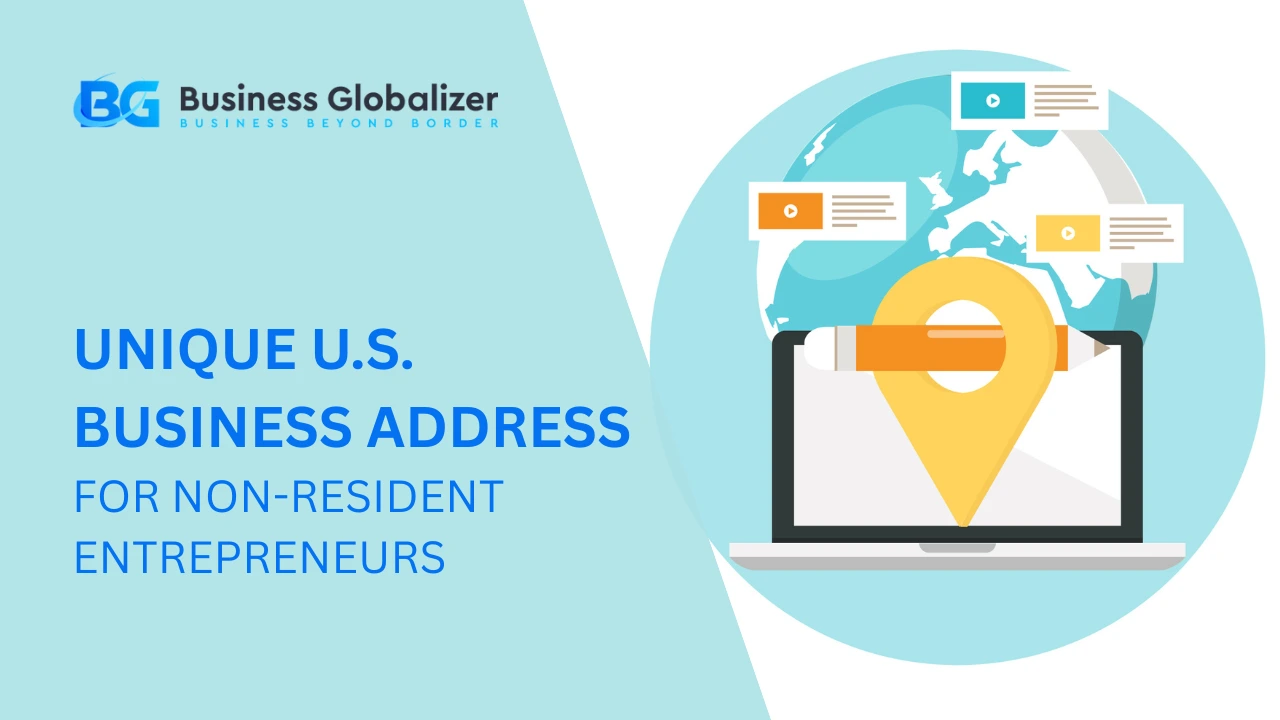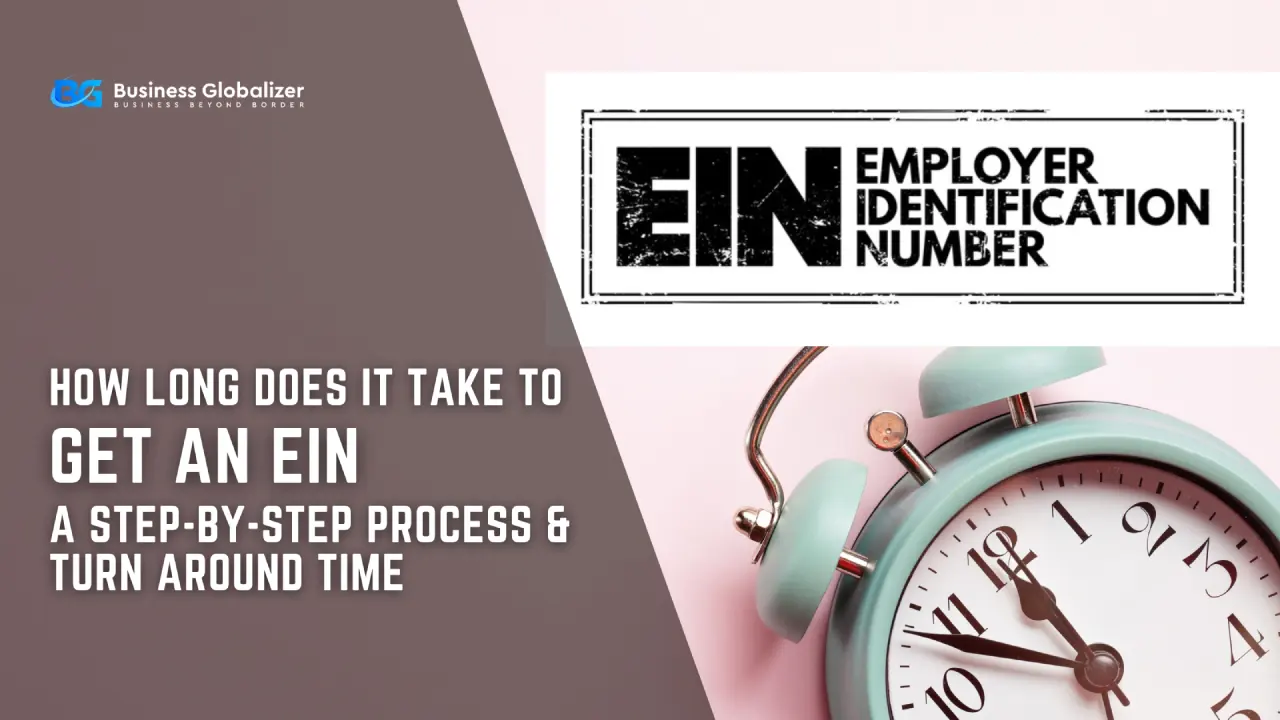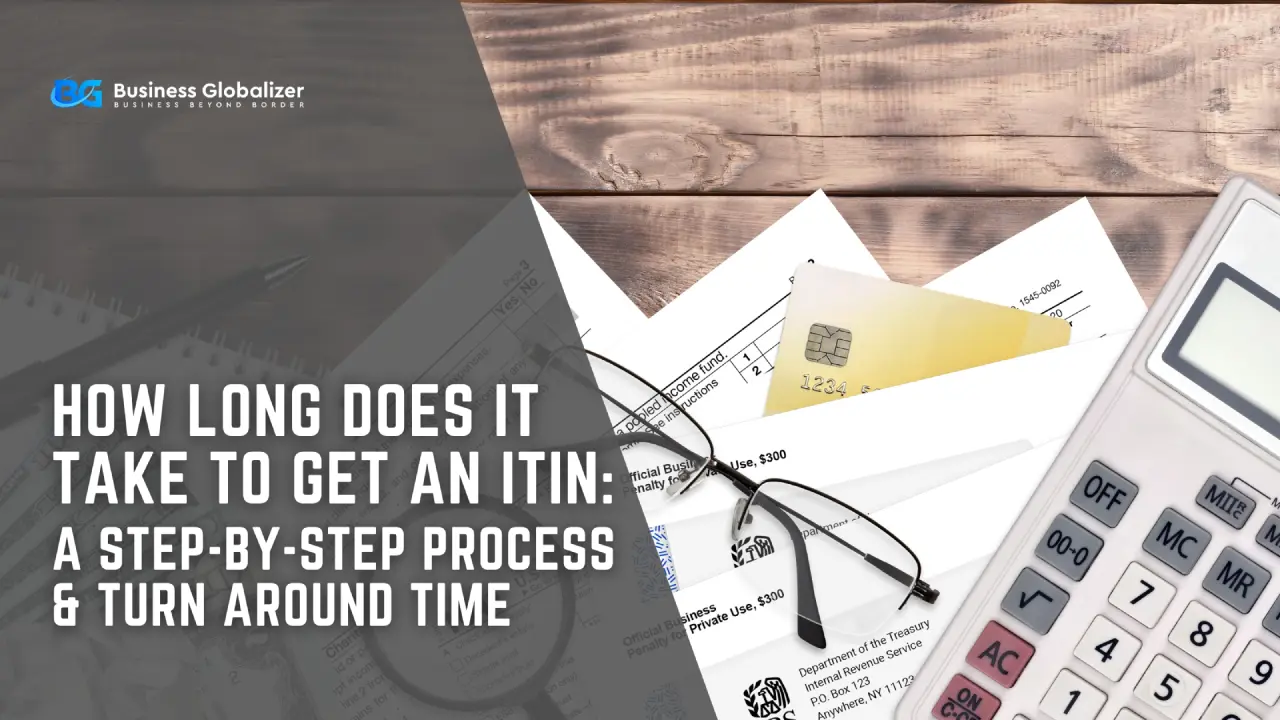Let’s be real.
You’ve got the company.
You’ve got the EIN.
You’re halfway through setting up the desired payment gateway.
And boom. They ask for something you didn’t expect to matter this much:
“Please enter your U.S. business address.”
- Not your friend’s apartment.
- Not a random P.O. Box.
- Not a vague “Suite 421” in a building you’ve never seen.
They want something real. Something that works.
And if you’re a nonresident founder, this one detail can make or break your U.S. journey.
So today, we’re gonna talk about that one line in your formation docs that everyone ignores… until it becomes the reason your payment gateway gets rejected or your IRS letter disappears into the abyss.
Let’s keep it simple, easy to follow, and actually useful for you.
So, What’s a Unique US Business Address, Really?
Imagine this:
You’re trying to convince a U.S. bank or Stripe that your business exists. Not just online. But in the system.
Where do they send your tax notices? Bank letters? State renewals?
That’s your unique U.S. business address.
It’s:
- A real street address (not a P.O. Box)
- In a commercial building
- Able to receive official mail
- Accepted by banks, IRS, merchant services, and, importantly, Stripe & PayPal
It’s different from your registered agent address, though often offered together (some providers do that). And nope, virtual office doesn’t mean “fake.” It just means you don’t need to be there physically. Many people also call this a virtual business address USA, which is perfectly legal and works as long as it’s a real commercial location.
Why You (as a Nonresident) Need a Unique Business Address
You’re not living in the U.S., and that’s okay. But your business? It needs to act like it does.
That’s why getting a proper virtual business address USA isn’t optional—it’s your official footprint that banks, Stripe, PayPal, and the IRS all recognize.
Because everything you want to access, from banks to Stripe to tax registration, expects your company to have a real U.S. presence. And for non-residents, your business address is the closest thing you’ve got.
Here’s why it matters more for you:
- It’s your official identity.
This is where the IRS sends your tax letters, and where banks expect your LLC to live.
- It’s required for financial tools.
Mercury, Relay, PayPal, and Stripe all want a verifiable U.S. business address. No address, no access.
- It helps your legal standing.
For EIN, BOI reporting, and even annual compliance, your address must hold up under scrutiny.
- It makes you look trustworthy.
Clients, platforms, partners, they all check that address line. Make it count.
A weak or fake address tells the world, “This might not be serious.”
But a proper one? It says, “This business is legit, even if its founder is sipping tea across the ocean.”
Why This Hits Harder If You’re a Nonresident
Look, if you’re not physically in the U.S., your address becomes your only footprint.
That’s what people will look at when they decide if you’re legit.
Banks? They want to see if you’re real.
Stripe? Checking for mismatches.
IRS? Just wants to know where to send your official letter.
A sloppy address? Red flag.
A professional, working address with your name and company on it? Green light.
What Makes It “Unique” for Founders Like You?
Now, let’s get to the heart of it.
Not all business addresses are created equal. You want one that:
| Feature | Why It Matters |
| Dedicated Suite Number | Not shared with 500 strangers |
| USPS Form 1583 | Legally lets someone else handle your mail |
| Mail Scanning & Forwarding | You see what arrives, wherever you are |
| Stripe & PayPal Compatible | They won’t flag it as shady |
| Used for EIN & Banking | Ensures IRS and banks take you seriously |
Unique U.S. Business Address vs. Registered Business Address
You’d think all these so-called “business addresses” mean the same thing, right? Totally fair; most people assume that at first.
But here’s the truth: they’re not all created equal. Not even close.
And honestly? Mixing them up is one of the most common (and surprisingly expensive) mistakes non-resident founders make early on.
So, let’s clear this up in the simplest way possible:
| Feature | Unique U.S. Business Address | Registered Business Address |
| Purpose | For mail handling, banking, PayPal, Stripe, invoices | For receiving legal/tax notices from the state |
| Accepted by banks & processors | Yes | Often not (especially if it’s a registered agent’s) |
| Mail Scanning/Forwarding | Usually included | Rare or not offered |
| Works for business listings | Yes (including invoices, websites, GMB if supported) | Not ideal |
| Dedicated Suite Number | Yes | Usually shared |
| Can be used for GMB | If supported by the provider | Not acceptable |
| Legal Requirement | Optional, but recommended | Mandatory for LLCs/C Corps in each state |
| Visibility & Credibility | Boosts professional image | Invisible to clients, for internal use only |
Can I Just Use My Registered Agent Address Instead of a Unique US Business Address?
Short answer? You could, but, to be honest, you really shouldn’t.
A registered agent address is for state legal notices only. Not for IRS mail, not for banks, definitely not for Stripe or PayPal. Most of them won’t even accept that kind of mail; they just toss it or send it back.
If you’re serious about getting approved, staying compliant, and not dealing with rejections down the line, use a proper U.S. business address. The kind that actually works for real stuff.
Don’t Fall for These Common Traps
Let’s shoot straight. Because people fall into these every day:
- $5 P.O. Boxes: Banks don’t accept them.
- Fake Suite Numbers: Might work for a week, until Stripe freezes your account.
- Registered Agent = Business Address? Nope. They’re not the same. Don’t mix them up.
Always ask:
“Will this work for EIN, IRS mail, banking, AND merchant account setup?”
If the answer isn’t a hard yes, skip it.
Where Do You Get One?
Alright, here’s the part most folks skip or overcomplicate.
You don’t need to scroll through a dozen forums or compare ten shady providers with no clear policies.
If you’re serious about getting a real U.S. business address that works for everything, from EIN to Stripe or PayPal, let’s talk.
If you’re serious about getting a real virtual business address USA that works for EIN, IRS mail, banking, and Stripe or PayPal, let’s talk.
Here, in Business Globalizer, we are not just another mailbox service. We’ve helped thousands of nonresident founders (like you and me) get fully compliant, bank-accepted, IRS-friendly addresses that actually get the job done.
Here’s what you get with us:
- A real commercial street address (no PO Box nonsense)
- A dedicated suite number, not shared with 500 other strangers
- Scanned copies of your incoming mail, delivered to your inbox
- Clear pricing, no hidden costs, no fine print traps
Whether you’re setting up an LLC, applying for an EIN, or getting ready to verify your Stripe or PayPal account, this is the kind of address that works everywhere it needs to.
And the best part?
Here, everything is handled by a team that actually knows what they’re doing; not a robot, not a call center. Real people, real solutions.
Final Thoughts (And a Little Nudge)
Here’s the deal:
In a world where your business can run from a laptop, your address is more than a formality. It’s your business’s first impression, your mailroom, and your trust signal, all rolled into one.
You don’t need to rent an office in New York. But you do need an address that makes you look like you belong there. And trust me, it feels different when your documents come with a street name in Miami or Austin instead of “No physical location provided.”
FAQ
Can I use a U.S. business address even if I don’t live in the U.S.?
Answer: Yes, you definitely can. And in fact, you should. If you’re running a U.S.-registered company as a nonresident, a proper U.S. business address helps you receive important documents, open bank accounts, and prove your business presence. It’s not about pretending you’re in the U.S.; it’s about staying legally and operationally prepared.
Will this address work for opening a business bank account like Mercury or Relay?
Answer: Yes, as long as it’s a commercial U.S. street address and not a P.O. Box or shared agent address. Banks like Mercury, Relay, and Brex often ask for proof of business address, and they know the difference between a credible one and a shortcut. Go with an address that holds up if they check.
Can I use the same address for my EIN and IRS mail?
Answer: Absolutely. This is one of the main reasons nonresident founders get a U.S. address in the first place. The IRS sends EIN confirmation letters and tax-related mail to the business address you list. So yes, your EIN, your IRS mail, and your BOI reporting can all go through this address.
What happens to my mail? How will I receive it if I’m overseas?
Answer: Good question. The provider (like Business Globalizer, in this case) scans the mail and sends it to you via email. You’re not left wondering what showed up; we make sure you see it.
Is it legal to use this address on my invoices and website?
Answer: Yeah, it’s completely legal. And honestly, a real smart move. Using your U.S. business address on invoices, contracts, or even your website helps you come across as legit and reliable. It shows clients (and platforms) you’re serious, that you actually exist and operate in the U.S., not just testing the waters.
Can I use this address to set up Stripe or PayPal?
Answer: Yes, and this is where the real value kicks in. Stripe and PayPal check business information closely, including your address. A real, commercial address (not a P.O. Box or registered agent-only address) greatly reduces the chance of rejection or future suspension. Just be sure the address you use matches your formation documents.
Can’t I just use my registered agent address for all this?
Answer: Tempting, but no. Your registered agent’s job is to accept legal and state notices only, not regular business mail, bank letters, or tax documents. Most registered agent services will actually block or discard unrelated mail. So, relying on that address can hurt your business more than help it.
What if my business grows later? Can I upgrade the address or switch locations?
Answer: You can. In fact, many providers offer multiple locations and flexible plans. But the key is to start with the right kind of address; one that works with banks, the IRS, and payment platforms from day one. Changing it later is possible, but can be messy with documents already in circulation.






